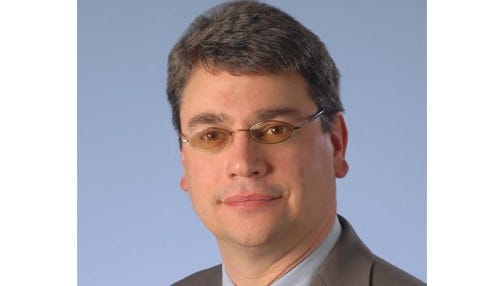Institute Makes Walking And Driving Safer, Indy’s Economy Stronger

Subscriber Benefit
As a subscriber you can listen to articles at work, in the car, or while you work out. Subscribe NowSpring is (finally) right around the corner. That means more people out enjoying warmer weather, exploring Indianapolis on foot or on bikes. It means college seniors across Indiana ramping up their job search. And it means automakers releasing details on new features for their 2019 models.
These observations may seem unrelated, but they intersect in the work of the Transportation Active Safety Institute, anchored in the School of Engineering and Technology at Indiana University-Purdue University Indianapolis. TASI advances IUPUI’s academic, research and community engagement missions in a unique way – safer streets and a stronger economic climate for our graduates to live and work in Indianapolis.
TASI is a leading research center for the testing and evaluation of new systems and approaches aimed at reducing vehicular accidents and saving lives. By working with automotive manufacturers and other industry partners, government agencies and academic experts, TASI is contributing toward the goal of radical reduction in collisions and fatalities. But the institute’s efforts are also very relevant closer to home.
Safer, walkable cities:
In his State of the State speech in January, Governor Eric Holcomb called Indiana’s workforce the "defining issue of the decade" – as educators, we certainly agree. Keeping more Hoosier college graduates – and attracting more of their peers from beyond the state – will be key to maintaining positive momentum in technology, advanced manufacturing, the life sciences and other knowledge-based industries.
At IUPUI, we’re doing our part; by a wide margin, our grads stay in Indiana. But we can always do more. One thing we know is that dynamic, walkable cities appeal to young, college-educated professionals.
Indianapolis has worked hard to become more pedestrian- and bicycle-friendly with a regional trails network that started with the Monon and more recently earned urbanist accolades with the Cultural Trail. More than a hundred miles of bike lanes and an expanding public transportation system will connect neighborhoods, employers and campuses like IUPUI with more convenient transit options.
But when a growing metropolitan area such as Indianapolis embraces walkability alongside a car-based commuter culture, safety issues must be addressed. TASI experts have studied ways to prevent impaired and distracted driving, conducting highly realistic testing of new safety features using robotic pedestrians and bicyclists whose movements mimic our own.
As cities grapple with more people, cars, cyclists, trucks and buses sharing space and infrastructure, TASI’s work can help put Indianapolis on the forefront of a safer, sustainable walkability – a trend that will appeal to future generations of workers.
Fulfilling the promise of self-driving safety:
Indianapolis is now one of the nation’s fastest-growing tech regions, with a thriving advanced manufacturing sector and strong auto industry. Indiana simultaneously ranks No. 2 among states in software job growth and employment by automakers – as the state’s largest metro, Indianapolis drives these rankings. Increasingly, TASI’s work with industry partners has focused on a transformative, high-tech automotive innovation – the trend towards autonomous (self-driving) vehicles.
Options such as collision-avoidance braking systems and "no hands" parallel parking are becoming commonplace in today’s cars. But with fully autonomous features heading toward our highways in the next few years and sharing suburban and city streets within a decade, additional research and development is required to define a "self-driving" future. When it comes to ensuring the safety of autonomous vehicles, industry and academia are already working together in Indianapolis through TASI.
In one recent project, TASI studied ways for vehicles to "sense" a driver experiencing a medical emergency, triggering a transition to self-driving mode (and even allowing the vehicles to sync with a driver’s pacemaker or implanted defibrillator to begin resuscitation while simultaneously notifying first responders).
TASI is also working on vehicle design issues raised by autonomous driving. If a driver no longer must be stationary in a seat, able to swivel to talk to other passengers, work on a laptop or do other tasks while the car is "self-driving," there needs to be an engineering and ergonomic re-evaluation of how airbags, seatbelts and other safety features are positioned and deployed.
Steering towards a stronger economy:
Indiana is already known as a great place for automotive manufacturing, but high-value investment and employment is happening around R&D hubs exploring exciting frontiers like self-driving technologies.
Pittsburgh has asserted a leadership position in this arena, touting the city’s partnership with Uber, a few promising pilot projects and applied research being conducted at Carnegie Mellon University. But Indianapolis also has an edge with proximity to auto manufacturers and TASI’s focus on the major practical and perceptual issues for self-driving vehicles – occupant and pedestrian safety. Add to that the presence of top engineering programs in and around the region and there’s no reason we can’t claim a share of this mantle and the opportunities that come with it.
Millennials and Generation Z want more options for walking, driving or biking to work, and they want this commute to take them to exciting careers in emerging fields. TASI’s research can help make Indianapolis a more livable city and a more lucrative job market for our engineering and technology graduates, by boosting our high-tech automotive sector.
The Transportation Active Safety Institute is one among dozens of research centers and industry initiatives based at IUPUI. But it’s a timely illustration of how the work being done on campus makes Indianapolis a more inviting place for our graduates to live and work, and a more attractive destination for businesses to innovate, invest and employ.
David Russomanno is dean of the Purdue University School of Engineering & Technology at IUPUI.
